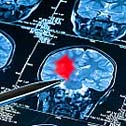How music helped Gabrielle Giffords relearn words

Do you know of any politicians in your country who has been injured in an accident? What did her doctors do to help her recover from the accident?
In January, when Gabrielle Giffords was critically wounded, it was unclear whether she would fully recuperate or regain her ability to talk. Giffords was injured on the left side of her brain near the section called Broca’s area that controls language.
However, recovery specialists have started using a unique, unexpected therapy to help patients recover their language ability: music. Even though we understand and create language on the left side of our brain, we understand music primarily on the right side. The way the brain relates to music is very unique. When we have a song stuck in our head or listen to a song by imagining it, our brain is very active as if we were really listening to that song. Neuroscience research has shown that music has an incredible impact across the entire brain. For example, earlier this year scientists in Montreal found that music actually creates a surge of dopamine, the neurotransmitter that communicates pleasure, scientifically proving why music makes you feel good. To read more about this study, see Jonah Lehrer’s article in Wired.
Because music relies on pitch and rhythm in addition to speech, it is interpreted in different parts of the brain, not solely the music or language areas. When rehabilitating injured patients like Giffords, rather than trying to redevelop the language area directly, this new therapy retrains the connections in the brain and creates a new language area in the music region of the brain. Giffords’s music therapist, Meghan Morrow compared to this approach to a highway detour in an interview with ABC News.
Learn more about language and the brain here.
In his book Musicophilia, neurologist Oliver Sacks traces other ways that music affects our brains. Music triggers long-lost memories in Alzheimer’s patients, and it can have a remarkable impact on Parkinson’s patients as well, including helping them regain movement. In a more mundane example, teachers also use the elements of music to help their students learn. As early as the ABCs, students acquire knowledge more efficiently when it’s tied to song.
In January, when Gabrielle Giffords was critically wounded, it was unclear whether she would fully recuperate or regain her ability to talk. Giffords was injured on the left side of her brain near the section called Broca’s area that controls language.
However, recovery specialists have started using a unique, unexpected therapy to help patients recover their language ability: music. Even though we understand and create language on the left side of our brain, we understand music primarily on the right side. The way the brain relates to music is very unique. When we have a song stuck in our head or listen to a song by imagining it, our brain is very active as if we were really listening to that song. Neuroscience research has shown that music has an incredible impact across the entire brain. For example, earlier this year scientists in Montreal found that music actually creates a surge of dopamine, the neurotransmitter that communicates pleasure, scientifically proving why music makes you feel good. To read more about this study, see Jonah Lehrer’s article in Wired.
Because music relies on pitch and rhythm in addition to speech, it is interpreted in different parts of the brain, not solely the music or language areas. When rehabilitating injured patients like Giffords, rather than trying to redevelop the language area directly, this new therapy retrains the connections in the brain and creates a new language area in the music region of the brain. Giffords’s music therapist, Meghan Morrow compared to this approach to a highway detour in an interview with ABC News.
Learn more about language and the brain here.
In his book Musicophilia, neurologist Oliver Sacks traces other ways that music affects our brains. Music triggers long-lost memories in Alzheimer’s patients, and it can have a remarkable impact on Parkinson’s patients as well, including helping them regain movement. In a more mundane example, teachers also use the elements of music to help their students learn. As early as the ABCs, students acquire knowledge more efficiently when it’s tied to song.
VOCABULARY AND PRONOUNCIATION
1. RECUPERATE [ri-koo-puh-reyt, -kyoo-] - to recover from sickness or exhaustion; regain health or strength ; to recover from financial loss.
Example : The doctor who checked on her condition is not sure if she will recuperate from her sickness.
2. SPECIALIST [spesh-uh-list] - a person who devotes himself or herself to one subject or to a particular branch of subject or pursuit; a medical practitioner who
devotes attention to a particular class of diseases, patients, etc
Example : When she finishes medical school, she dreams to continue to become a specialist of the brain.
3.AREA [air-ee-uh] - any particular extent of space or surface; part; a geographical region; tract; any
Example : The business area is located near the bus terminal.
4. NEUROTRANSMITTER [noor-oh-trans-mit-er, -tranz-, nyoor-] - any of several chemical substances, as epinephrine or acetylcholine, that transmit nerve impulses across a synapse to a postsynaptic element, as another nerve, muscle, or gland.
Example : Epinephrine is one of the chemicals found in the brain that acts as a neurotransmitter.
5. MUNDANE [muhn-deyn, muhn-deyn] - of or pertaining to the world, universe, or earth; common;
ordinary; banal; unimaginative
Example: She is continually bothered by the mundane things in this world.
DISCUSSION
1. What kind of therapy did Gabrielle Giffords' recovery specialist used to help her regain her ability to speak?
2. How did music help in her therapy?
No comments:
Post a Comment